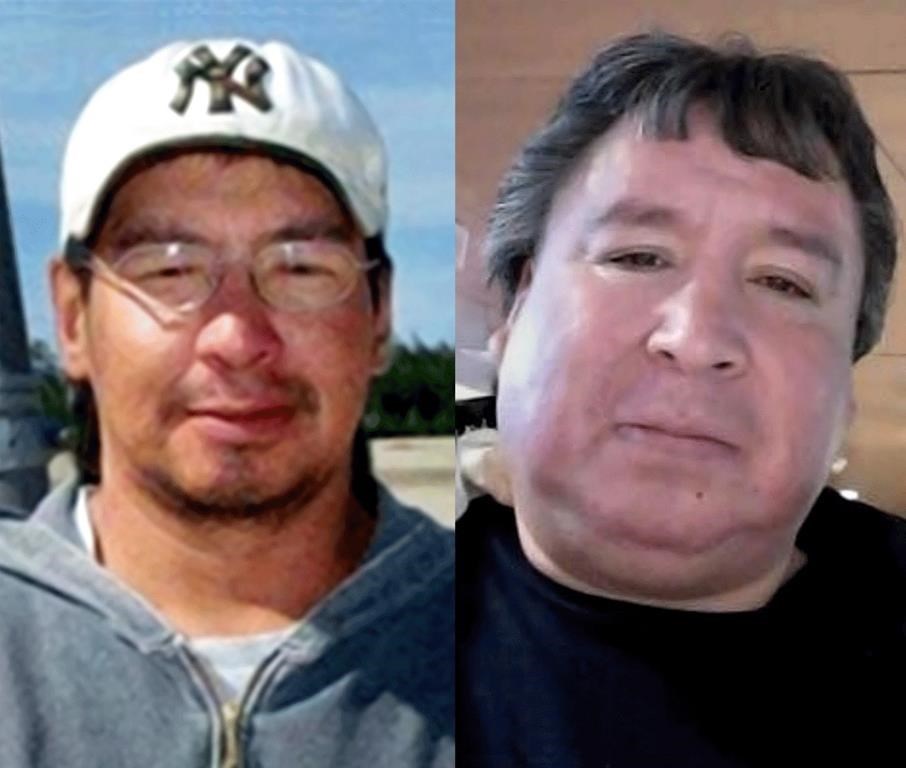Officers from Ontario police forces told a coroner's inquest into the custody deaths of two Indigenous men that communities need more alternative spaces for people who are publicly intoxicated.
The joint coroner's inquest is probing the 2014 death of Donald Mamakwa, 44, and the 2017 death of 50-year-old Roland McKay. Both Indigenous men died of medical conditions in Thunder Bay police custody after being arrested on suspicion of public intoxication.
The inquest heard Friday from officers who work in the southwestern Ontario city of Guelph and northern Ontario communities of Sioux Lookout and Kenora.
Staff Sgt. Michael Kreisz testified that the Ontario Provincial Police in Sioux Lookout has drastically reduced the number of tickets it issues related to public intoxication since 2017.
Despite that decision, Kreisz said police still hold more than 2,000 intoxicated people in cells overnight each year due to lack of other safe spaces like shelters and detoxification centres.Â
"We have very few resources," he said. "You find that as you creep further north."
Sometimes, he said, intoxicated people will voluntarily check themselves into the police station because they have nowhere else to go in the cold -- something he said he considers "dehumanizing" and "morally wrong."
"In our view, that’s wrong. There should be another place for them to go," he said.
The inquest has heard that Mamakwa and McKay both had chances of survival if they had been taken to hospital.Mamakwa died from complications from diabetes, sepsis and chronic alcoholism, a forensic pathologist testified.
Video of the hours before Mamakwa's death showed him moving about in a cell and asking for help. The inquest has heard that he asked to go to the hospital before his arrest, but was denied that request.
Kreisz said prisoners in the Sioux Lookout police station are released and taken to hospital if they need medical attention.
Insp. Jeffrey Duggan with the Kenora OPP testified that his detachment in the northwestern Ontario city has more options for where to take intoxicated people because of the wider range of services available in the city.Â
Kenora police have also reduced public intoxication tickets, he said. Police there work with a detoxification centre, where they bring intoxicated people instead of to the police station.Â
Makwa Patrol, a street-check group in the city, also plays an important role in helping people on the street, Duggan said, noting that the Indigenous group helps build trust with clients where police might struggle.
Duggan said funding for such programs is important, but highlighted that supporting services like detoxification centres are also needed to ensure success. He also noted that there are limited police cell spaces in Kenora, making alternative spaces necessary.
Both cities have large Indigenous populations, and many of the people brought into police custody are Indigenous, the officers testified.
The inquest also heard from Insp. Stephen Gill with the Guelph Police Service. He said there has been a reduction in public intoxication arrests and the percentage of those people who are held in lockup.
Such arrests "would be a lot higher" without resources like the police force's crisis response team and city outreach workers, he said.
However, there is no detoxification or sobering facility in Guelph. Gill said he thinks more of those addictions support resources would help prevent the need for any intoxicated person to spend time in a police cell.
"I would like to see them not coming to the police station," he said.
Officers from all three forces said intoxicated people in custody are checked on at least every 15 minutes.Â
The inquest is set to continue on Monday.
This report by The Canadian Press was first published Oct. 28, 2022.
Holly McKenzie-Sutter, The Canadian Press



